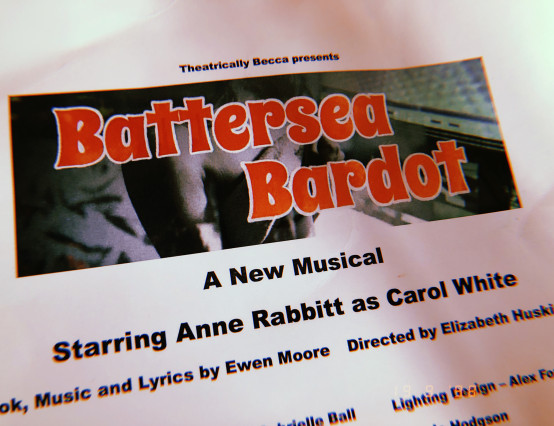Created by American playwright Lynn Nottage, the play looks at the lives of factory workers, their relationships and friendships that are about to be affected by corporate decisions. Shedding light on the American Dream’s erosion, the play is set in 2000-2008, in one of America's most economically disadvantaged cities, Reading, Pennsylvania. It displays a cohort of factory workers who wrestle with the challenges of maintaining stability in their lives, unaware of the financial catastrophe ahead.
The play debuted in Oregon in 2015 and for its 2024 run in Manchester, UK, ‘Sweat’ is being directed by South London-born theatre director Jade Lewis who relates to the story presented in the play. “I see myself in that story. I've experienced it,” Lewis says, noting how she and her family come from a working class background.
Lewis looks at the core of the play - the narrative that sees into the socio-economic fabric of working-class communities: “I feel like it's a real snapshot of the real reflection of society, especially today. We're going through a recession with the cost of living crisis and how building organisations are making decisions that make it hard to survive. And this happened back then in 2008. But this is a cycle that happens again and we should be able to talk about it, see it and be aware of how those things affect our behaviour.”
Drawing parallels between the play's setting and contemporary socio-political discourse, Lewis argues that ’Sweat’' remains relevant due to its exploration of issues such as racism, sexism, and ableism. Regarding the play's relevance across different times, Lewis references Lynn Nottage's observation that ‘Sweat’ resonated differently after Trump's election. "The play doesn't feel dated in any way because you could set that play now, and it would still speak on today," she remarks further noting how despite the setting of the play being in America, is still relatable to Manchester, where the play will be running.
The working class communities having their voices amplified lies at the core of the narrative. Lewis advocates for the representation of these stories on stage. She believes such narratives foster empathy and illuminate the complexities of balancing livelihoods and mental well-being in an unforgiving economic landscape. She says, “I feel like it's important to showcase these stories, especially when you're looking at working-class people, Manchester being an example of that as it has that industry and that identity of working class and the pride of being working class. I think it's great to see those stories on stage and for those voices to be heard. It helps audiences to understand the struggle and complexity of what it means to be working class, the struggles they face in balancing your paycheck and also your mental health for example.”
Having a sense of understanding is something Lewis acknowledges that the play has with its ability to instigate thought and foster a deeper understanding of the human experience, seeing theatre as offering an opportunity to spark collective engagement that contrasts with the isolating nature of media consumption. "It allows you to have an experience and shared experience in one space, which I think is somewhat rare now," she observes. This spark of emotions is a hope Lewis has that the viewers will not only witness the struggles depicted on stage but also engage in meaningful dialogue about societal issues. "I want audiences to feel moved, inspired, and have an emotive response to moments whether it be pain or feeling happiness," she expresses.
However the most important thing for Lewis was to remind audiences that the working class are humans first, their jobs second. The setting of the play, a bar, becomes pivotal in showing the lives the working class has outside of their jobs. Through the lens of a local bar - a symbol of friendships, lives, joys and escape for the characters - audiences watch how the economic shifts affect this space, the relationships formed and the identity of the people. Lewis explains, “The bar is a representation of escape from work. Whether it be British, American or worldly cultures, there is that place that you go to connect with your friends, to leave work, to offload. And how such a space changes due to the economic climate and how industry changes through time, affecting ordinary lives.”
Reminding audiences that the working class are people first becomes harder when people themselves aren’t able to separate their identities from their work. Lewis notes how people tend to define themselves by their profession, linking one's job to their sense of self and purpose.
“What's interesting is when we introduce ourselves to each other, we say what we do - which is just to make money - like it's part of our identity. I think there's something there in the story of ‘Sweat’, with the character’s sense of identity being so connected to their work because that's connected to their purpose. This is incredibly important to the characters- to have that purpose. I think that many humans believe we're here for a reason, you know, and to this community in ‘Sweat’ or working-class their reason is labour and that will get them to the American dream.”
And yet she questions this identity hoping to provoke introspection, suggesting that human beings are more than their professions and that there is a need for a healthier perspective on work and identity. She states, “I hope that we're able to question why we make those relationships with ourselves. Why do we make our work part of our identity? Why is that so important to us?” Lewis emphasises the potential negative impact on mental health when individuals tie their entire sense of self-worth to their jobs, especially in the face of challenges or job loss. She sees the importance of exploring these connections, their implications for individuals' well-being and their ability to navigate the complexities of life: “I hope that it raises the question, rather than me saying yes, it is important to question this because we are human beings at the end of the day. And we are not our job. There's a healthiness in that. However, if your job has been challenged, your sense of being is challenged. And then how does that affect your mental health? How does that affect how you can navigate this world since you only connect work to your life?”
Lewis's experience with ‘Sweat’ extends beyond artistic expression; it embodies a profound journey of collaboration and discovery. She celebrates the diversity of the cast and crew, emphasising the collective effort invested in bringing the play to life. She marvels at the diverse characters portrayed in the play, each embodying a unique facet of humanity. Their dedication to the craft and the collaborative spirit enrich the storytelling experience, making it a profound journey for both creators and audiences alike. As for her favourite memory of working on ‘Sweat,’ Lewis highlights the joy of the production. "Every character is different, and the actors are just as different as each other. They are all lovely human beings. They're all playful actors. They want to be here and they want to tell this story," she says. "My highlight is being fortunate enough to be working on something great with great people."
‘Sweat’ serves as a reminder of the indomitable spirit of working-class communities and the enduring quest for dignity and justice in an ever-changing world. The play is set to run from 26th April to 25th May 2024.








0 Comments